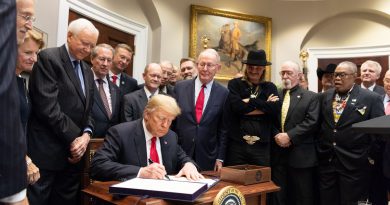The Dilemma Of Having A Different Political View From Your Family
Election season is well under way and animosity is at an all time high in many households across the U.S.
As a 20-year-old Cuban-American who identifies as a Democrat, I dread the political discussions that often arise at the dinner table. My family, who are all steadfast Republicans, are adamant in their beliefs. With the general election approaching, it’s no surprise that they waved their Marco Rubio flag and attempted to lead me, their eldest daughter, down the path of righteousness.
When I initially shared that I would be voting for Bernie Sanders, my father experienced something akin to a heart attack. He couldn’t believe that I was supporting a “communist” who would transform our country into the oppression-filled nation that he fled from as a child. I tried to explain the difference between Democratic Socialism and the outright communism Sanders’ competitors are feeding to the media, but it all fell on deaf ears.
This stark political divide often makes me feel like the black sheep of the family. I am seen as the young, rebellious college student who is eager to oppose my parents in every way possible.
While speaking with fellow classmates at Miami Dade College, I found comfort in discovering that I’m not alone in this inter political household predicament.
Catherine Toruno, a 20 year-old mass communications major at Kendall Campus, shared her frustrations in clashing with her conservative parents. For Toruno, the issue lies in her family’s religious views. Her parents are strongly against same-sex marriage. However, as a young person who isn’t a part of any organized religion, she views these controversial topics differently.
Toruno walked into her living room on June 26, 2015 to find her family dismayed by the Supreme Court’s ruling that same-sex couples could legally marry nationwide. As someone who has friends who have dealt with discrimination based on their sexual orientation, she felt it was her duty to further discuss the issue.
As with many cases, this “discussion” dissolved into a full-fledged argument. Toruno has accepted the fact that this situation may never change.
“As a family, we have learned to accept our political differences,” Toruno said. “I’m sure they want me to change my views as much as I want to change theirs.”
According to a Pew Research Center study on Partisan Advantages by Year of Birth, Gen Xers (those born between 1965-1980) showed to be mostly conservative in their beliefs, while Millennials (those born after 1980) proved to be more liberal. It’s no coincidence that young people tend to classify themselves as Democrats while many of their parents identify as Republican.
The somewhat good news? We may some day experience this situation from our parents’ point-of-view firsthand. According to trends recorded in The New York Times, waves of party interest differ depending on the political climate and movements of the time. By the time Millennials transition into starting families and taking the place of their predecessors, our world will be a completely different place. In thirty years, we may be the ones appalled that our children are rallying to support Donald Trump Jr.




